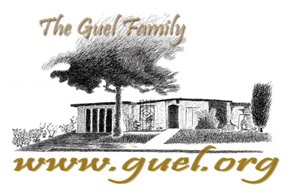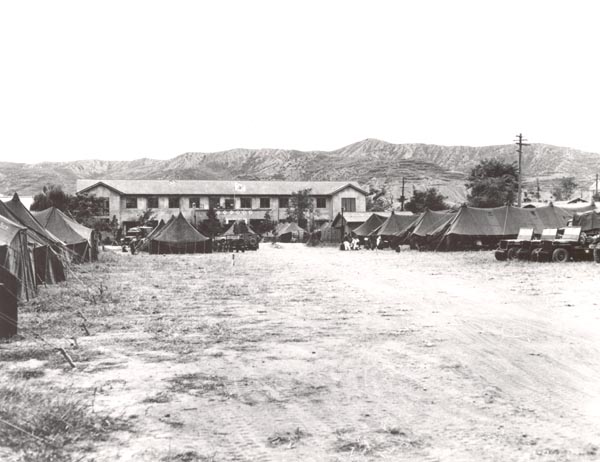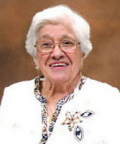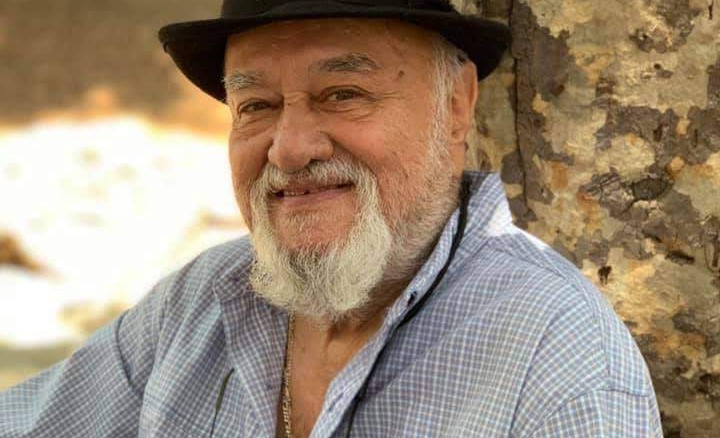As dictated by Luis Guel to his granddaughter, Lydia Guel
 I was a part of the 151st evacuation hospital in the Korean War. We would occupy high schools, hospitals, any building they put in.
I was a part of the 151st evacuation hospital in the Korean War. We would occupy high schools, hospitals, any building they put in.
There was a woman who gave birth to a baby and then she died.
I told my supervisor, “what am I going to do? I have this baby.” He said, “get rid of it!” I had another 100 patients to work with. It seems odd to say, but I was lucky that there was a Major there who had another boy that he accidentally shot because he thought he was one of the enemies. That poor boy was only 10 years old. The Major brought him to me and we operated on his arm and we took care of him and the baby. He felt so guilty that he did that to that child. So we kept them in the ward. He was so grateful.
He told me, “anything I can do for you, you tell me. You saved this kid’s life. Without your help, that kid would have died.” I told him that “we did what we had to do in this place.” He told me, “no,” that he felt indebted to me. I explained what happened with that little baby. The parents had passed in the war. He told me, “I’ll tell you what… For what you did for the boy that I shot… there is an orphanage in the city. I will send your baby with you to the Catholic orphanage and they won’t refuse you.” I told him that would satisfy me because no one wanted the baby.
The driver took me in the Jeep and we took the baby to deliver it to the orphanage. Then I had a hell of a time with the person who as in charge of the hospital and she was so mean. She said, “we are in the orphanage business, but we cannot take care of an infant.” I told her I traveled 30 miles with this baby. I was in the ward and to deliver and travel this far for this baby, I pleaded with her to save this baby. The other worker there told her – “no, we will take this baby and not turn them away.” It was one favor for another. That made me happy and I left the baby in the orphanage and signed the papers. The sister had said they cannot take any more adoptions because they were full. I told her I traveled for 2 hours each way and no one wants this baby and this baby HAS to survive.
The sister said she would not take the baby unless someone legally signed for her. She made me sign my name in order to accept the baby. I wrote the name as Luisa Guel. I told that later to my wife, Licha, and she said, “yeah right! Like I’m going to believe that” and she was so mad at me about it. I told her that I had a situation that had to be taken care of and I had to save the life. Someone else had to adopt the baby so that I could live with myself and my conscience.
 For a whole month, we tried to keep the baby safe at the hospital and no one wanted it. It was obvious that someone needed to take care of the baby right away. She was so little and in the middle of a war.
For a whole month, we tried to keep the baby safe at the hospital and no one wanted it. It was obvious that someone needed to take care of the baby right away. She was so little and in the middle of a war.
During a war, what are you going to do? You do what you can to save the lives. It was hard in the war, seeing people dying. They had no food. Instead of the 25 people that I was supposed to care for, I had 100 people. People were sleeping on mats on the floor and the government would not give me food to take care of them. I would have to give them shots of penicillin so that I could trade for medication and food for those babies. There were so many babies sick and dying and they needed help. I told them I’d help them if they would help me by taking that child in. People told me to let the baby die, but I could never do that.
By that time, I already knew I had a beautiful child with my wife at home. I wanted to be home with them.
Years later, I wonder what happened to little Luisa. She’s somewhere out there in Korea with my name. I would have liked to see the baby and see what happened to her eventually. Years later, I wrote a letter to the town and they returned a note saying that after the war, everything closed. There was no record of that orphanage anymore. I gave my name and he told me that I was free. I said, “not really.” These are the problems of the war that we had to go through. We would do whatever we could to save a life.
I did ask for help from the doctors and all that. They said,” we can’t help you. This is a war. Give the baby away.” I said, “but nobody would take her!” They were impossible decisions, back then.



